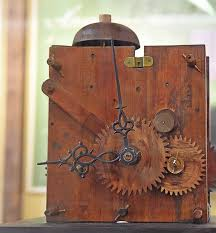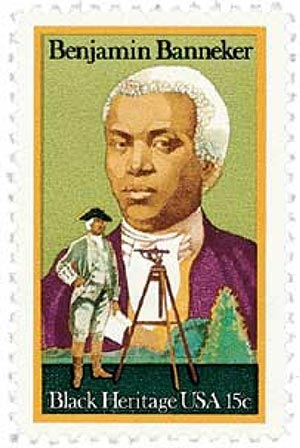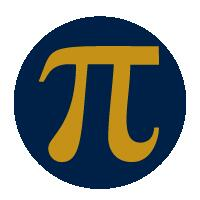“As people, we've had more than our share of hereditary academic disaffection that people seems to have about math … Today, our promising young people are even more threatened by exposure to teachers … who are convinced that blacks … are abysmally and irrevocably hopeless when it comes to math.”
Sr. Wade Ellis: 1980 (1909-1989)
10th African-American Doctorate in Mathematics
Francis William: 1702 - 1770, Jamaican Mathematician
Bachelor of Mathematics - Cambridge University
Francis Williams was selected to participate in a social experiment designed by the Duke of Montagu, who wanted to show that black individuals - with the right education - could match the intellectual achievements of whites.
One rival once suggested: "… The abstruse problems of the mathematical institution have transformed his brain; and he still remains, I believe, an unfortunate example, to show that every African head is not naturally adapted to such deep contemplations."
Graduated in Mathematics, Latin and Literature from Cambridge University, he returned to Jamaica to set up a school, teaching math, Latin, reading and writing.
Thomas Fuller: 1710 - 1790, Slave and Mathematician
Excellent Powers of Calculation
Thomas Fuller was an African slave who was known for his exceptional arithmetic skills. His case was used by abolitionists to argue that blacks were not mentally inferior to whites. On the other hand, black inferiority psychologists and psychiatrists have described the case as a Savant syndrome.
He is known to have been born in West Africa, somewhere on the "Slave Coast." At 14 he was kidnapped and sent to America, where he would become legal property of a couple of farmers in Virginia, USA. Given that the talent of the young slave could be useful in practice, he eventually went on to perform other activities on the farm other than arable planting. Examples:
- How many tiles for the new roof?
- How many posts and rails to surround the ground?
- How much corn to sow the field? etc
The always immediate and correct answers.
As his fame grew, several very attractive proposals were offered to their owners. However, like many other farm slaves, Thomas Fuller was never sold and expressed gratitude for it.
When Fuller was old, a group of dealers became interested in the case and asked him several questions. One was: "How many seconds did a man live at age 70, 17 days and 12 hours of life?" In just over a minute came the answer: "2 210 500 800". However, one of the examiners reported that the answer was incorrect and Fuller immediately replied, "You forgot the leap years!" After this correction, the examiner agreed with the answer.
Despite the flawless performance, the dealer group got the impression that Fuller's mental ability had already been higher one day. And, commenting that it was a pity that he did not have an education at the same level as his genius, Fuller replied:
"No, Master. It is better that I did not have formal education, because many educated men are great fools.", Thomas Fuller
His obituary in 1790 was somewhat unusual because "Black Tom", as it was written, was never near Boston. He died 800km away from the city of Alexandria, Virginia, where he lived all his adult life. In his epitaph he included, among others, the following elegy:
"Thus died Black Tom, this self-taught arithmetic, this uneducated scholar! ... If his opportunities for development had been equal to those of thousands of his colleagues, neither the Royal Society of London nor the Academy of Sciences of London. Paris, not even Newton himself, would have been ashamed to recognize him as a Brother in Science. "
Thomas Fuller's Epitaph: Columbian Centinial, Dec 1790, Boston, Massachusetts
ps: Note the abolitionist character of the conclusion.
Benjamin Banneker: 1731 - 1806, Astronomer and Civil Rights Defender
The sky was not your limit
Although best known as an African-American scientist, Benjamin Banneker was a talented person who self-educated in astronomy and mathematics. He was also a writer, almanac compiler, surveyor, inventor, and civil rights defender.
"Never abandon your vision. Keep moving on to achieve your dreams.", Benjamin Banneker
At 22, he designed and built a functional watch without having a single lesson or book on the subject. The device was wooden and banged every hour. People traveled miles to see this clock.

Replica of the watch developed by Benjamin Banneker.
Using his understanding of trigonometry and astronomy, he accurately predicted a solar eclipse on April 14, 1789, contradicting the predictions of prominent mathematicians and astronomers of the time. He said Sirius's star is actually two stars instead of just one. However, his hypothesis was only confirmed two centuries later by NASA's Hubble Space Telescope.
Banneker was also a passionate defender of civil rights. In 1791, he wrote a letter to the then Secretary of State and future President of the United States, Thomas Jefferson, where he discussed the statesman's view of slavery and how it contradicts the Declaration of Independence.
"Skin color has no connection with mind strength or intellectual ability.", Benjamin Banneker
He died at the age of 74 in 1806. During the funeral, his dwelling was set on fire and his watch destroyed - it worked for over 50 years.
In 1980, the United States Postal Service issued a first-class stamp in honor of Benjamin Banneker. The clothing is typical of the time, but there is no record of your face.

Elbert Cox: 1895 - 1969, 1st Doctorate in Black Mathematics
The Pioneer
After fighting for his country in World War I, Elbert Cox applied for a doctoral program. One of his referees wrote: "He would have certain difficulties because he is of the colored race."
Universities in England and Germany would not recognize their doctorate at the time. However, San Dei Imperial University of Japan Dei accepted the dissertation.
In 1929, he became the first black mathematician in the world to earn a PhD in mathematics. From 1929 to 1961, he taught at Howard, a historically black college and university. Thus, it inspired several generations of black mathematicians to obtain a doctorate.
Euphemia Lofton Haynes: 1890 - 1980, 1st Black with PhD in Mathematics
The winner
Euphemia Lofton Haynes faced three obstacles to becoming a PhD in mathematics. She was female, she was black and she was in her 50s.
In 1940 the Cambridge Mathematician G.H. Hardy wrote "Apology of a Mathematician," one of the most widely read books on the nature and practice of mathematics. She stated, "No mathematician should allow himself to forget that mathematics, more than any other art or science, is a game of young men."
Three years after Hardy's book, Euphemia Lofton Haynes completed her PhD in Mathematics. She was living proof that you are never too old and that math is not just for the few, but for everyone.

Comments